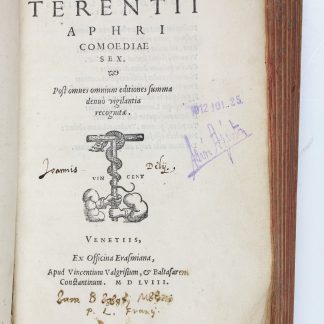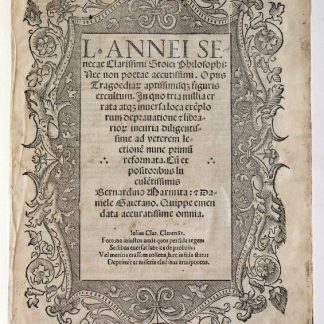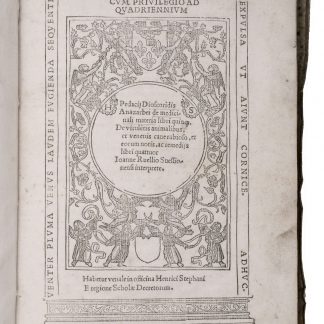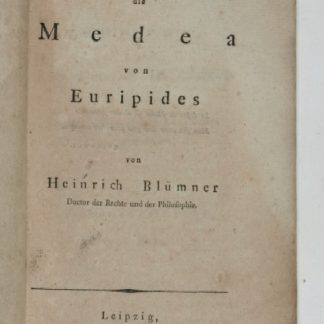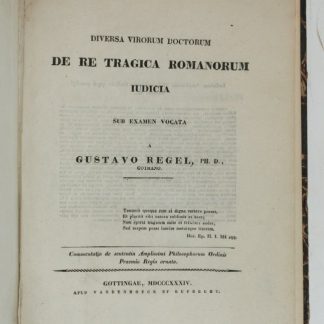Diversa virorum doctorum de re tragica romanorum iudicia sub examen vocata.
4to (197 x 246 mm). VI, 70 pp. Marbled boards.
€ 140,00
A prize-winning essay on the value of Roman tragedy in comparison to the achievements of the Greeks. This issue had fascinated late-18th and early-19th century literati since Lessing's damning opinions on why "die Römer in dem Tragischen noch so weit unter dem Mittelmässigen geblieben sind" ("the Romans remained so far below the average in their tragedies", Lessing, Lacoon [1788], p. 45).
Composed in an easy and fluid Latin style (a point emphasised both in contemporary reviews of the piece as well as in the award statement, p. II), Regel's essay begins with a short statement of its research question (pp. 1-3) before splitting into two chapters. The first (pp. 3-56) constitutes a review of earlier, largely negative opinions about the quality of Roman tragedy - including those of influential scholars Planck, Schlegel, and Stieglitz - in which Regel already begins his defence of Latin drama with reference to numerous ancient authors. Chapter two (pp. 56-70) then attempts to prove the value of Roman tragic composition with reference to the enthusiasm for this art to be found elsewhere in Roman literature. Regel concludes with a brief summary of his argument: "... populi vero Romani maior saltem pars summo per ultima reipublicae tempora studio tragicas actiones spectabat, ac verisimile est, Romanos non tantum singulas tragicorum heroum virtutes ac sententiosam tragoediarum sapientiam admiratos, sed, quos excitare student tragici poetae animi affectus, iis sese commoveri passos esse" ("... indeed the majority of the Romans, at least during the last days of the Republic, watched tragic performances with keen interest, and it is probable that the Romans not only admired the individual virtues of tragic heroes and the powerful wisdom of the tragedies, but that they also allowed themselves to be moved by the very emotions of the soul that the tragic poets strive to stir", p. 70). After its publication, Regel's essay was reviewed in a series of journals and saw mention in W. A. Becker's major Handbuch der römischen Alterthümer (1843-1868).
The volume is well-preserved. The pages are lightly browned throughout, as typical for paper of this time. There is one small ink stain on pp. 2-4, not affecting the text. The binding shows minor wear on the spine and edges with a break-line in the front cover - a result of bending. Overall, stimulating evidence of the vivid aesthetic discussion about classical literature taking place at the turn of the nineteenth century across Europe.
Engelmann/Preuss II, 20. Becker/Marquardt, Handbuch der römischen Alterthümer nach den Quellen IV (1856), p. 523, note 56. Stärk, Kleine Schriften zur römischen Literatur (Tübingen, 2004), p. 341, note 43.


